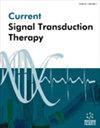非小细胞肺癌相关基因SNP突变的鉴定与鉴定
Q3 Medicine
引用次数: 1
摘要
下一代测序(NGS)的出现创造了一个高通量平台,可以使用RNASeq测序分析来识别人类的疾病特征和表型特征。非小细胞性癌症(NSCLC)是一种致死性疾病,占大多数肺癌的85%,存活窗口很小。基因图谱可以改善肿瘤图像生物标记印象的判断。因此,有必要描述疾病表现中的变异。为了了解导致NSCLC的主要基因中的SNP,从SRA数据库下载了50岁以上患者的RNASeq数据。质量矩阵分析被映射到基因组参考联盟人构建38(GRCh38),以调用变体并用燕尾服方案识别SNP。分析了SNP和变异模式,以了解健康个体和NSCLC患者之间以及不同年龄患者之间的比较。主要分析了与NSCLC相关的癌基因,如KRAS、EGFR、ALK、BRAF和HER2,以了解SNP,并对其功能变化进行了表征。鉴定出属于上述基因的质量分数较高的SNP,这为我们在基因组水平上理解NSCLC提供了基础。这些基因对变异频率的进一步折叠变化可以被定位,以更深入地了解NSCLC。本文章由计算机程序翻译,如有差异,请以英文原文为准。
Identification and Characterization of SNP Mutation in Genes related to Non-small cell lung cancer
The advent of Next Generation Sequencing (NGS) has created a high throughput
platform, to identify disease traits and phenotypic characteristics using RNASeq Sequencing analysis in humans. Non-small
cell lung cancer (NSCLC), a lethal disease accounts for 85 percent of most lung cancers with very small window ofsurvival
rate. The decision of tumour image bio marker impression can be improved by gene profile. Hence there is a need to
characterise the variants in the disease manifestation.
To understand the SNP’s in the major genes responsible for NSCLC, RNASeq data of patients aged above 50
years, were downloaded from SRA database. The quality matrix analysis is mapped to Genome reference consortium human
build 38 (GRCh38) to call the variants and identify SNP’s with the tuxedo protocol.
The SNP’s and the patterns of variants were analysed to see the comparison between healthy individual and NSCLC
patients, and in between patients of different age. Oncogenes commonly associated with the NSCLC like KRAS, EGFR,
ALK, BRAF and HER2 were mainly analysed to see the SNP’s and their characterisations with respect to the functional
change was done.
The SNP’s with the greater quality scores belonging to the above said genes were identified which gives us a
baseline to understand the NSCLC at the Genomic level. Further fold change of these genes to the frequency of variant can
be mapped to understand the NSCLC at a greater depth.
求助全文
通过发布文献求助,成功后即可免费获取论文全文。
去求助
来源期刊
CiteScore
1.70
自引率
0.00%
发文量
18
审稿时长
>12 weeks
期刊介绍:
In recent years a breakthrough has occurred in our understanding of the molecular pathomechanisms of human diseases whereby most of our diseases are related to intra and intercellular communication disorders. The concept of signal transduction therapy has got into the front line of modern drug research, and a multidisciplinary approach is being used to identify and treat signaling disorders.
The journal publishes timely in-depth reviews, research article and drug clinical trial studies in the field of signal transduction therapy. Thematic issues are also published to cover selected areas of signal transduction therapy. Coverage of the field includes genomics, proteomics, medicinal chemistry and the relevant diseases involved in signaling e.g. cancer, neurodegenerative and inflammatory diseases. Current Signal Transduction Therapy is an essential journal for all involved in drug design and discovery.

 求助内容:
求助内容: 应助结果提醒方式:
应助结果提醒方式:


